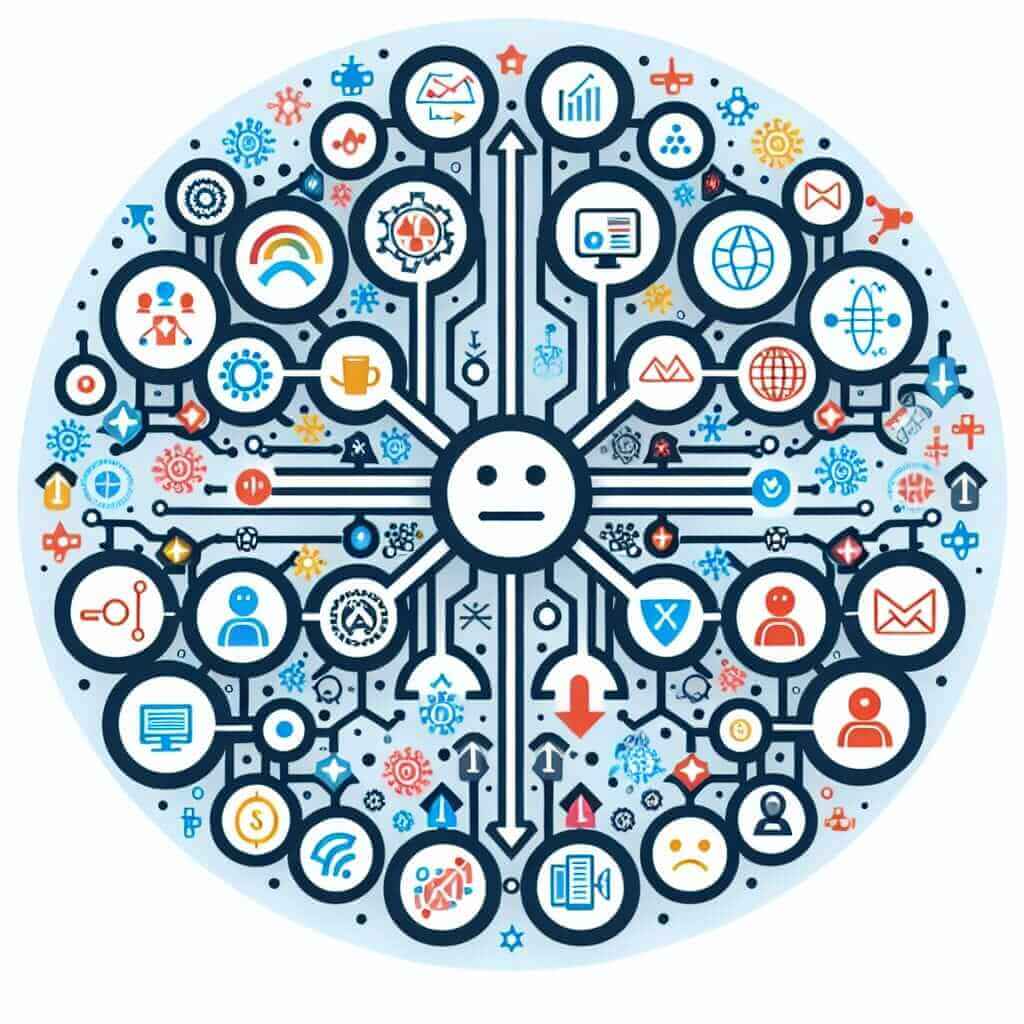The IELTS Reading test is a key component of the IELTS exam, where candidates are assessed on their ability to understand and interpret written texts. A prominent topic that has gained traction in recent years is the “Economic impacts of artificial intelligence on job markets.” This subject not only aligns with the evolving technological landscape but also appears increasingly relevant, reflecting its potential recurrence in future IELTS exams. Drawing on historical data and current trends, this topic provides a robust foundation for us to explore various facets and related inquiries, enabling comprehensive preparation for the IELTS Reading test.
Reading Practice Test: Economic Impacts of Artificial Intelligence on Job Markets
Passage
The Economic Impact of Artificial Intelligence on Job Markets
Artificial Intelligence (AI) has significantly transformed various industries, heralding a new era characterized by automation and advanced data analytics. These advancements have introduced both positive and negative economic impacts on job markets worldwide.
AI’s ability to automate routine tasks has led to increased efficiency and productivity in numerous sectors. For instance, in manufacturing, AI-powered robotics can perform repetitive tasks with precision, reducing the need for human intervention and minimizing errors. Similarly, in the financial sector, AI algorithms have the capacity to analyze vast amounts of data swiftly, facilitating more informed decision-making processes.
However, the rise of AI also poses substantial challenges, particularly concerning employment. Automation of routine jobs has resulted in the displacement of workers in roles that are highly susceptible to robotic intervention. Administrative positions, factory jobs, and even certain service industry roles are facing significant reductions in workforce demand.
Moreover, there is an increasing demand for skilled labor that can develop, implement, and manage AI technologies. This shift necessitates substantial investments in education and training to equip the existing workforce with the requisite skills. Thus, economic disparity may widen as workers in non-automated sectors continue to thrive while those in automated sectors struggle to reskill or seek alternative employment opportunities.
Despite these challenges, the integration of AI into various industries is projected to generate numerous new job opportunities. Roles such as AI specialists, data analysts, and cybersecurity experts are burgeoning, highlighting the evolving landscape of job markets influenced by AI.
Questions
Multiple Choice
-
What is a positive impact of AI on job markets, as mentioned in the passage?
- A. Increased need for human intervention
- B. Enhanced productivity and efficiency
- C. Decreased need for education
- D. Reduced data analysis capabilities
-
Which industry has AI significantly impacted by automating routine tasks?
- A. Agriculture
- B. Healthcare
- C. Manufacturing
- D. Real Estate
True/False/Not Given
- The financial sector has been unaffected by AI advancements.
- AI has caused a reduction in the demand for administrative positions.
Matching Information
- Match the following statements with the corresponding information (A, B, C, or D) from the passage:
- A. Introduction of AI has been beneficial in areas requiring data analysis.
- B. A challenge posed by AI is the economic disparity it may cause.
- C. AI’s integration is expected to create new job roles.
- D. Workers in automated sectors may need to reskill.
Sentence Completion
- AI’s ability to ___ has led to increased productivity in manufacturing and financial sectors.
Answer Key
- B
- Explanation: The passage states, “AI’s ability to automate routine tasks has led to increased efficiency and productivity in numerous sectors.”
- C
- Explanation: The text references “manufacturing” as one of the industries where “AI-powered robotics can perform repetitive tasks with precision.”
- False
- Explanation: The passage mentions “in the financial sector, AI algorithms have the capacity to analyze vast amounts of data swiftly,” indicating that AI advancements have impacted this sector.
- True
- Explanation: The passage indicates that “Automation of routine jobs has resulted in the displacement of workers… Administrative positions… are facing significant reductions in workforce demand.”
-
- A: “in the financial sector, AI algorithms have the capacity to analyze vast amounts of data swiftly.”
- B: “economic disparity may widen as workers in non-automated sectors continue to thrive.”
- C: “the integration of AI into various industries is projected to generate numerous new job opportunities.”
- D: “resulted in the displacement of workers… necessitates substantial investments in education and training.”
- automate routine tasks
Lesson
Common Mistakes:
- Misinterpreting the context of automation as purely negative.
- Overlooking the evolving job roles emerging from AI integration.
Vocabulary
- Displacement (noun): /dɪsˈpleɪsmənt/ – The act of moving something from its place or position.
- Equity (noun): /ˈɛkwɪti/ – The quality of being fair and impartial.
- Reskill (verb): /rɪˈskɪl/ – To learn new skills so that you can do a different job.
Grammar
- Relative Clauses: E.g., “AI algorithms, which have the capacity to analyze vast amounts of data swiftly, facilitate informed decision-making processes.”
- Passive Voice: E.g., “AI is projected to generate numerous new job opportunities.”
Recommendations
For an optimal IELTS Reading score, practice regularly with diversified topics, focus on understanding the passage structure, and enhance your vocabulary and grammar skills.
Related Articles:
- Economic Effects of Artificial Intelligence on Financial Services
- Economic Impacts of the Digital Revolution
- Economic Impacts of Technological Innovation

By following structured practice and utilizing comprehensive materials, you can significantly improve your Reading skills for the IELTS exam.